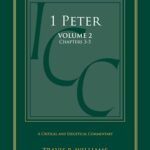On Dealing with the Frowning Providence of Failure
I recently had a conversation with a man who made a major life decision that turned out poorly. This man apparently did everything right—he based his decision on careful research of the available facts, the application of sound biblical principles to these facts, the unanimous advice of wise counsel, and much prayer. But after the decision was made, new and unforeseeable (not just unforeseen, but unforeseeable) circumstances occurred to create additional hardship and ultimately to scuttle his intentions.
What should we think about this situation? There are basically two options:
(1) We could conclude that since the plan failed, the man must have made a bad decision. The assumption here is that all decisions made within God’s will must and will succeed. If they don’t, then the decision-maker is necessarily to blame. Perhaps he didn’t research enough, read his Bible enough, pray enough, or maybe he missed some ineffable clue that God left along the way. Whatever the particulars, the man must have missed something, because God always reveals all the information necessary for successful decisions.
(2) We could conclude that even though the decision failed, this failure offers no necessary commentary at all on the man’s decision-making capabilities. He may not be guilty of a bad decision or even of a “mistake,” but may instead have simply experienced the frowning providence that overtakes us all from time to time in accordance with God’s secret purposes in this sin-cursed world.
It is of course possible that this man missed some important piece of data, counsel, or biblical principle that, if heeded, might have averted the hardship (I’ll leave off the ‘ineffable clue’ bit for now). The Scriptures do, after all, say many positive things about planning, the wisdom of godly counsel, and the study of Scripture for its riches that thoroughly equip the man of God for every good work (2 Tim 3:16). But at the end of the day, it is possible to make every necessary inquiry, discover every pertinent text, and access all of the available counsel, and still experience failure. God doesn’t always give us all the data we want; he doesn’t guarantee success by slipping us personal revelations or prophetic windows into the future; and he doesn’t guarantee that all our righteous plans will succeed. That’s just not how it works, as Job so aptly illustrates for us. Indeed, the Scriptures give abundant testimony of those who were “tortured, faced jeers and flogging, were chained and imprisoned, were stoned, sawn in two, and put to death by the sword, went about in sheepskins and goatskins, destitute, persecuted and mistreated, wandering in deserts and mountains, in caves and holes in the ground, and died without receiving what had been promised” (Heb 11:35–39). Indeed, as the biblical author so aptly points out, our final plans always terminate in failure: the dark maw of death is the prescribed end for us all. This is not due ultimately to bad decision-making, but because in God’s wisdom he has decreed suffering/death as a portal to joy in the universal experience of all his children.
So what is my friend to do? Surely he should confess and learn from any errors he may have made (if he made any), but above all, he should exhibit the faithfulness, patience, and trust in God that marked his biblical forebears, trusting God to divulge, in this life or the next, the promise that stands fixed behind every cloud of frowning providence that inevitably accrues to God’s people.
God moves in a mysterious way
his wonders to perform:
He plants his footsteps in the sea,
and rides upon the storm.
Deep in unfathomable mines
of never-failing skill,
He treasures up his bright designs,
and works his sovereign will.
Ye fearful saints, fresh courage take;
the clouds ye so much dread
Are big with mercy, and shall break
in blessings on your head.
Judge not the Lord by feeble sense,
but trust him for his grace;
Behind a frowning providence
he hides a smiling face.
His purposes will ripen fast,
unfolding every hour:
The bud may have a bitter taste,
but sweet will be the flower.
Blind unbelief is sure to err,
and scan his work in vain;
God is his own interpreter,
and he will make it plain.



Hi Mark,
This is a great point you make. If I can say it this way, “It’s a bad decision to immediately conclude someone’s failure is a result of a bad decision.”
I would also say that “It’s a bad decision to immediately conclude someone’s success is a result of a good decision.” Downright irresponsible decisions could, by God’s grace, turn out very well.
At best, we all make decisions on incomplete information.
There are so many unknowns in the world. Simply put, we don’t know what we don’t know, but God does.
Two people in virtually similar situations could make similar decisions based on similar information in similar contexts and one could succeed and other fail because concurrent similarity in no way guarantees continuous similarity. A dissimilar unexpected nuance could completely change the trajectory of any course of events.
Could it not be that the Lord allows people to fail, in particular His children, solely to give other believers the opportunity to demonstrate the love of Christ by supporting and encouraging the person to persevere and comprehend that same love?
I think one of the best examples of this occurs in Genesis 12, with the call of God to Abram to the promised land. When Abram arrived in Canaan the Lord appeared to him and Abram built an altar and worshiped. But what did God call him into? He called Abram right into the middle of a famine, and famine’s don’t go away overnight.
God could have prevented the famine. He could have directed Abram’s journey so that he arrived after the famine was over; but, no, the Lord’s providence was for Abram to arrive in the middle of the famine; and from the Scriptures there is no explicit statement of why God did so.
We can glean from the text that this was indeed a test of Abram’s faith and trust, and a proof and confirmation of God’s faithfulness. But it was a hard providence, with no explanation from God about why or what purpose this hard providence served.
As in the story in the post, there were unforeseeable circumstances…unforeseeable to us as finite beings, but totally foreknown by our omnipotent God, the One who has declared the end from the beginning.
What do we need to keep in mind during times such as this? A progression in Psalm 119 helps us with this.
119:68 You are good and do good.
119:71 It is good for me that I was afflicted
119:75 I know, O Lord, that your judgments are righteous, and that in faithfulness you have afflicted me.
119:76-77a O may Your lovingkindness comfort me, according to Your word to Your servant. May Your compassion come to me that I may live…
The Lord is a God of faithfulness (Psalm 89:5,8). In affliction and through affliction God is being faithful to us by accomplishing what concerns us (Psalm 138:8), and that is our eternal good.